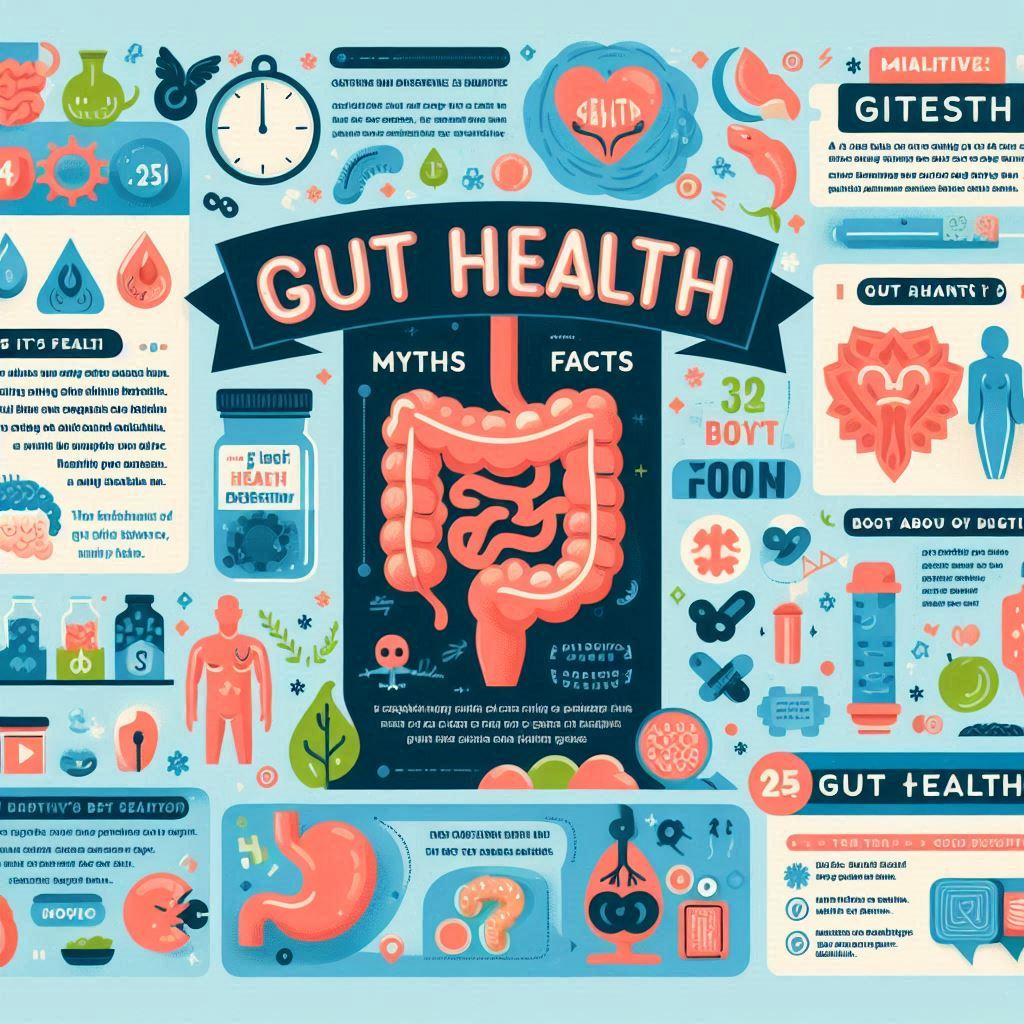Last updated: April 23, 2025

Introduction
In the world of digestive wellness, gut health myths abound—from magical detoxes to one-size-fits-all diets. Many of these misconceptions can actually hinder your progress. In this post, we’ll debunk seven widespread myths with scientific facts backed by authorities like the NIH and the CDC, and explain why a targeted probiotic like Mitolyn can be your secret weapon for real digestive support.
Myth 1: You Need to Drink Lemon Water Every Morning
Fact: While lemon water can aid hydration, there’s no clinical evidence that it detoxes your gut. The liver and kidneys manage detoxification, not citrus. Instead, focus on plain water intake—about 8–10 glasses daily—to support overall digestion and nutrient transport.
Myth 2: Low-FODMAP Diet Is Best for Everyone
Fact: A low-FODMAP diet helps those with IBS but isn’t necessary for all. Eliminating fermentable carbs long-term can reduce microbial diversity. According to a NIDDK guideline, such diets should be short-term and supervised to avoid nutrient gaps.
Myth 3: All Probiotics Require Refrigeration
Fact: Modern encapsulation techniques allow many high-quality probiotics to remain shelf-stable. Mitolyn’s delayed-release, room-temperature formula retains 20 billion CFUs of 8 clinical strains without needing refrigeration—validated by third-party testing.
Myth 4: Prebiotics and Probiotics Are Interchangeable
Fact: Prebiotics are fibers that feed beneficial bacteria; probiotics are live microbes you ingest. Both work together: prebiotics nourish existing flora, while Mitolyn’s probiotic strains introduce targeted CFUs to bolster diversity and resilience.
Myth 5: Gluten-Free Means Gut-Healthy
Fact: Unless you have celiac disease or gluten sensitivity, eliminating gluten isn’t necessary and may reduce intake of whole grains that feed your microbiome. Whole grains like oats and barley provide beta-glucans, shown by the ScienceDirect review to support microbial diversity.
Myth 6: Fasting Heals Your Gut
Fact: Short-term intermittent fasting can benefit metabolic health, but prolonged fasting may stress your gut lining and alter microbial balance. Instead, focus on balanced meals with fiber-rich foods, fermented ingredients, and targeted probiotics like Mitolyn to maintain stability.
Myth 7: You Can Build Gut Health Fast
Fact: True gut health improvements take consistency over weeks or months. Studies show meaningful shifts in microbiome composition occur after at least 4–8 weeks of combined dietary changes and probiotic use (NIH study). Incorporate Mitolyn daily alongside your nutrition plan for sustained results.
Debunk Myths, Embrace Facts with Mitolyn
Ditch the misconceptions and choose a scientifically backed approach: Mitolyn delivers 20 billion CFUs of 8 studied strains in enteric-coated capsules, plus prebiotics. Order Mitolyn Now and start building real gut health.
Practical Takeaways
- Hydrate with plain water over trendy detox drinks.
- Use low-FODMAP only if diagnosed with IBS.
- Balance prebiotics (fiber) with targeted probiotics.
- Include whole grains unless gluten-intolerant.
- Maintain consistent probiotic use for at least 2 months.
Frequently Asked Questions
What’s the difference between prebiotics and probiotics?
Prebiotics are fibers that feed your gut bacteria; probiotics are live strains you ingest. Combining both yields optimal microbiome support.
How long should I take a probiotic?
For lasting benefits, take daily for at least 8 weeks. After initial improvements, maintenance doses can vary based on your health goals.
Explore more in our Myth vs. Fact: Digestive Health category.

